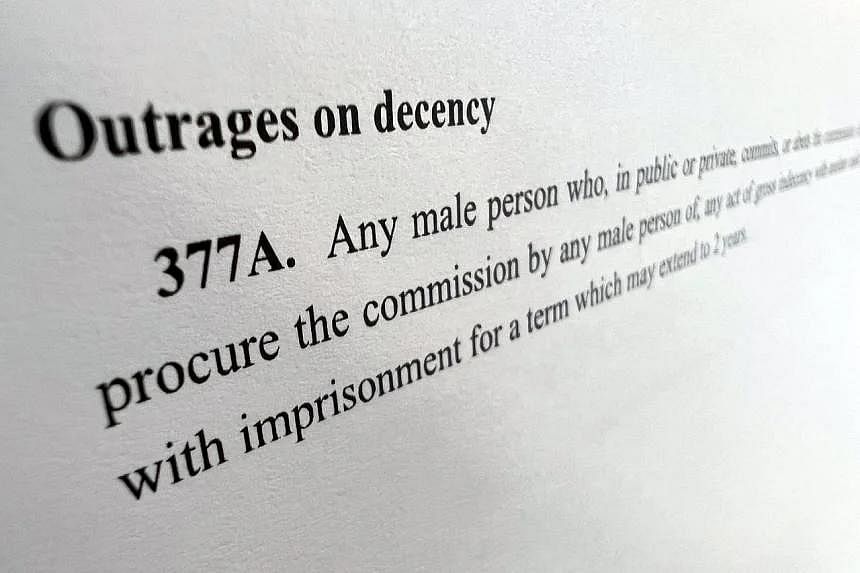SINGAPORE – Amending the Constitution to protect the current definition of marriage from court challenges will satisfy most Singaporeans, said observers, as it balances the move to repeal the law that criminalises sex between men.
On Thursday, two Bills were introduced in Parliament – one to repeal Section 377A of the Penal Code and the other to amend the Constitution to prevent the current definition of marriage – between a man and woman – and government policies made on that basis, from being challenged in the courts on constitutional grounds.
Singapore Management University (SMU) sociology professor Paulin Straughan said the vast majority of Singaporeans are sympathetic to concerns of having Section 377A on the books, but they also continue to “valorise” the idea of marriage as between a heterosexual couple, she said.
“Because of the sentiments here to uphold the definition of marriage as being between a heterosexual couple, I think that the vast majority of Singaporeans would probably find this middle ground comfortable for now,” she added.
Most Singaporeans knew that the moves in Parliament on Thursday were coming up since Prime Minister Lee Hsien Loong had announced them in August, and most would be fine with them, said National University of Singapore sociologist Tan Ern Ser.
Dr Mathew Mathews, the Institute of Policy Studies’ principal research fellow and head of social lab, noted that some people were concerned that Singapore would follow the path of other countries to legalise gay marriage after Section 377A is repealed.
The constitutional amendment will provide the assurance that Singapore is not making such plans, he added.
It provides safeguards that “such decisions will need to go through the political process where there is expectedly much negotiation, rather than be adjudicated through the courts, where matters tend to be decided in a binary, win-lose decision,” said Dr Mathews.
Associate Professor of Law at SMU Eugene Tan said the moves should help reduce lawsuits on the constitutionality of laws and policies that are premised on marriage being a union of a woman and a man, while also facilitating the accommodation of differences in society here.
He added that the constitutional amendment does not overreach, as it maintains the status quo on how marriage is defined and on laws and policies based on that definition.
“This is very much aligned with the preference of most Singaporeans.”
But there is no guarantee that culture wars will not happen, he cautioned.
The topics of homosexuality and family continue to be divisive unless more conversations about them are had, said political observer Felix Tan from Nanyang Technological University.
Extremists on both the conservative and liberal sides of these issues will not be satisfied with changes, and there is a stronger need for dialogue to understand each other’s concerns that goes beyond simply instituting laws, he said.
“These changes will have ramifications on civil society moving ahead. One can only hope that with this new law and the removal of 377A, it will reduce the propensity of all to denigrate each other’s beliefs; values and/or sexual orientation,” he said.


